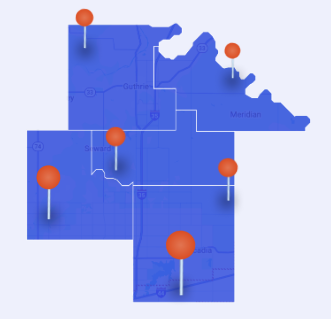How a Low-Income Designation Can Be an Advantage to Your Credit Union
A low-income designation benefits credit unions with field of membership powers and access to secondary capital, nonmember deposits, grants, and loans.

.jpg)
Understanding the Low-Income Designation (LID) and How it Can Help Your CU
Credit union leaders may have concerns about being low-income designated for their fields of membership, but it’s important to look at the overall package of low-income designation and how it can positively impact your credit union’s business as a whole. A LID designation can be beneficial in many regards, and credit unions don’t have to worry about the potentially negative connotations of being designated ‘low income,’ because the credit union is not required to advertise it. Plus, low-income does not mean exclusively low-income members; for example, Washington, DC, has been approved as a low-income field of membership.
Federal credit unions can earn low-income designation when a simple majority of members qualifying as low income. A low-income member is:
- one whose median family income is 80% or less than the median family income for the metropolitan area in which they live or the national metropolitan area, whichever is greater, or
- an individual who earns 80% or less than the median earnings for individuals for the metropolitan area where they live or the national metropolitan area, whichever is greater.

The NCUA makes the determination based on a combination of geocoding software and demographic information during regular examinations. If a credit union is not approved, but feels it should receive the LICU designation, contact the NCUA’s Office of Credit Union Resources and Expansion for assistance; you may be requested to provide supplemental data to support the credit union’s claim.
Federally insured, state-chartered credit unions can achieve the LICU designation and receive the same benefits as a federal credit union to the extent state laws allow and with the condition that both the NCUA and State Regulators agree on the designation.
In addition to receiving shares from members, insured shares from public entities and other credit unions, LICUs are eligible to receive nonmember, insured shares up to $3 million or 50% of total shares, whichever is greater. This flexibility allows LICUs to obtain funds for loans or investments outside its low-income member base.
LICUs can also participate in secondary capital accounts, which other credit unions cannot. In order to qualify, LICUs must submit a plan to the NCUA outlining the use of the secondary capital, as well as repayment. It’s also important to note that under federal regulations, detailed disclosures to secondary capital investors are required.
Additionally, member business loan rules are much more flexible for LICUs. LICUs are not required to abide by the standard rule capping member business loans at 12.25% of their assets or 1.75 times net worth. While exempt from the cap, other rules still apply as outlined in 12 CFR Part 723.

Credit unions receiving the LICU designation also have the advantage of being eligible to receive grants from the Community Development Revolving Loan Fund. This NCUA-administered program provides funds to help credit unions offer financial services to low-income members in an effort to stimulate the local economy. In 2019, $2 M in grants and $3.5 M in loans are planned to best made available for federal credit unions. Additional funds are also available via the Treasury Department’s Community Development Financial Institutions Fund, which in 2017, awarded more than $39 million to 56 credit unions.
Finally, LICU designation provides a field of membership advantage. Low-income, multiple common bond credit unions are able to create low-income associations to help low-income people and add them as members, helping to alleviate poverty in your area.
If you need more information or assistance in achieving a LICU designation or expanding your credit union’s field of membership, please contact CUCollaborate.
Low-Income Designation








.jpg)







.png)




.png)



.png)











.jpg)
.jpg)










